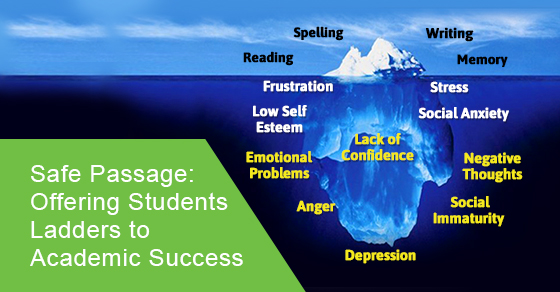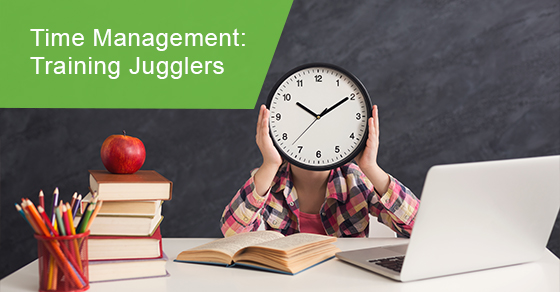It’s no secret that the needs of students may be inadequately addressed in the classroom. Teachers are often pressed for time, resources, or both, and sometimes may not provide the depth of feedback and guidance some students need to thrive. Through no fault of their own, students can be left behind, under-developing the skills required to fulfill their potential. They might be asked to write a paragraph without fully understanding how to construct a complete sentence, or to edit a video essay without guidance on how to manage their time, leading to an unhealthy blitz just hours before the project is due, and—in both examples—to academic underperformance.
Without adequate skills training for math, reading, writing, organization, and planning, students’ grades will not match their efforts, capsizing their senses of self-worth; without academic and emotional support, feelings of isolation can become overwhelming, preventing otherwise curious and capable minds from building competency. Gifted learners can likewise lock themselves into perfectionism through internal or external pressure to succeed, submitting nothing instead of a sub-par product, or destroying their health to fit their work into a self-imposed mold. Giftedness becomes underperformance, and underperformance quickly becomes a demoralizing rut. This rut deepens over time, so early intervention is crucial to ensure students receive the most helpful tools and support to escape it.
Writing is hard. To physically write, a person must hold a utensil, stabilize a paper, visually guide their hand, move the utensil, recall letter shapes, and form letters one by one, while ensuring legibility, to create words. Cognitively, writing relies on both working and long-term memory to determine what the writer wants to express, to sort and discard information, and to create sentences to capture that expression, all while spelling correctly and retrieving appropriate vocabulary.
If any of the many processes involved in writing are not automatic, as is the case for those who struggle with visual-motor integration, dyspraxia, dysgraphia, written expression disturbance, or executive function deficits, the entire process becomes tortuous and exhausting. Human working memory can only manage a few pieces of information at once, otherwise it becomes overloaded. If, for example, a student is focused on forming letters, there will be less working memory free to focus on forming ideas, increasing the possibility of cognitive overload.
When overloaded, students are prone to procrastination, avoidance, and reduced motivation, all behaviours that feed into ruts of underperformance. These behaviours are misinterpreted as laziness, but the opposite is true: students are trying so hard that their brains become overwhelmed. Writing is a complicated skill to learn for anyone, so when it is especially difficult, when students stare at a blank page struggling to articulate what they know, it is not because of any intellectual deficiency. The same is true of students with dyslexia, who are routinely confronted by the daunting prospect of reading or spelling, and do not understand why they cannot read. Unfortunately, these students often blame themselves for their challenges when there is no one to blame for anything. Progress can be slow, frustrating, and hard, but students always know more material and are capable of greater feats than they think. At Evoke Learning we aim to guide students toward recognizing their own potential through skills training to aid automaticity and by encouraging step-by-step strategies. Such strategies shrink the scope of any task, making it more manageable so students’ minds only focus on one step at a time.
This approach is especially useful for students with executive function deficits like ADHD. People with ADHD generally struggle to meet and set deadlines, initiate, organize, plan or complete tasks, or process written or verbal information. Contrary to the stereotype, people with ADHD can also struggle with chronic fatigue because of the extra cognitive energy required to sustain concentration. Our practitioners help students plan schedules, create earlier artificial deadlines, and block time to initiate and complete specific tasks. We believe that small, measurable success is achievable every day, and that these successes contribute to competency and self-expression.
Assistive technology is another powerful tool to aid expressiveness, but sometimes communication is also an issue of confidence. A student might be so used to underperformance that they dismiss every word that could start a sentence as inadequate, or every idea as too stupid, silly, or base, and end up producing nothing. Negative self-talk is a powerful deterrent, and it can be difficult for parents or guardians to alter in their children. No matter what is said, children might still believe their parents encourage them out of obligation instead of genuine desire. Otherwise honest students might lie about grades or workloads, but these lies are often founded on fear and internalized feelings of incompetence more than maliciousness or relationship dynamics. Lies, like procrastination, avoidance, and reduced motivation, are an emotional response. In both cases, as outside sources, Evoke’s personalized remediation and academic strategies programs can help students manage these emotional responses and provide an honest, neutral space for them to pursue and become more comfortable with success.
Underperformance can be shattering. It can feel like an inescapable trench, but it is not; our practitioners’ roles are to provide academic ladders to ensure each student’s safe passage into academic success.



